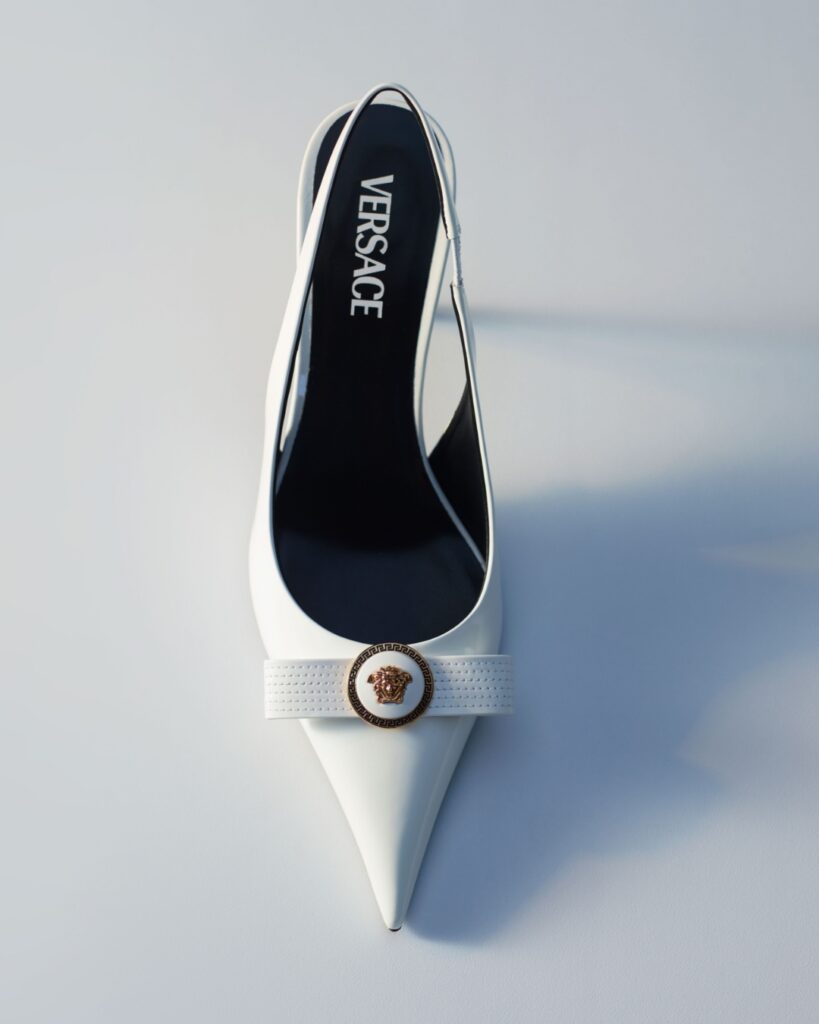
Do your batteries run out faster than your iPhone, despite the daily injection of coffee? If you dream of bouncing out of bed in the morning, then it’s time to plug in and recharge – and guess what, it has nothing to do with getting extra sleep.
You just got back from an awesome holiday, a work promotion is on the cards (woot!), your 5km-a-day run means you’re looking (and feeling) fit, and things are actually going well with that guy you’re seeing. Life! You’re smashing it, girl. But when anybody asks ‘How are you?’ your automatic response is to regale them with how wrecked you are and how hard it is to drag yourself out of bed in the morning, despite getting loads of ZZZs. So why oh why are you so freakin’ tired all the time?
In an explanation fit for the digital age, Dr Libby Weaver, author of Exhausted To Energised, says that we should be as concerned about our depleted energy levels as we are with our phone batteries. In fact, continuing with the technology analogy, it’s like we’re all running around with far too many Safari tabs open in our brains and it’s making us go flat. “There’s 600 emails at work you haven’t dealt with, you’ve got to remember to renew your car insurance, there’s a rip in the carpet you need to repair and stuff you have to pick up on the way home,” lists Dr Weaver. “All these tasks zooming around in your head never close because you never complete them. We flatten our battery so fast when we have all those open tabs of tasks that we haven’t completed.” So how do we plug in and power up? By closing down those tabs, that’s how.
Good morning
Gratitude might be the self-help buzzword right now, but it turns out that millions of #blessed and #grateful hashtags are clogging up your Insta feed for a reason. Last year, the American Psychological Association (APA) reported “[practising] gratitude was associated with better mood, better sleep and less fatigue.”
Yep, it’s time for us to appreciate what’s good about the present. Dr Weaver suggests committing to a morning ritual, whether that’s five minutes or an hour, where you focus on setting up your day and thinking about something lovely. “It can sound cheesy, but it’s impossible to be stressed about something when you’re grateful for it. That’s powerful for your body and it’s a great way to start the day,” says Dr Weaver. A quick way is to record three happy thoughts daily, either on paper or via an app such as Gratitude Journal (available from the App Store).
The hell-yes test
Sometimes life can feel like a series of relentless requests. Whether it’s your boss wanting you to manage the intern, or your mum pressuring you to have dinner with your third cousin, the desire to please is hard to shake. We often end up saying we’ll do things when we don’t actually want to, creating even more open tabs in our life. “A lot of people are yes-a-holics,” says Dr Weaver. “We aren’t taught to have boundaries and it can make us fatigued. Think about when someone says to you ‘Can you help me with this?’ and you think, ‘That’s not a priority for me’. You end up doing it, but you don’t do it quickly, and it becomes another open loop – it depletes you.”
Learning to flex your “no” muscle is challenging, so Dr Weaver recommends using the ‘hell yes’ buffer when deciding whether you want to do something. “If the answer is not [an instant] hell yes, then it needs to be no. You can say no simply, with kindness, graciously, and you don’t have to give a reason. People are still going to like you and if they don’t it’s a reflection on them, not you.”
Aside from the added major benefits of having more time, energy and fun (YOLO), saying no will actually earn you more respect from your friends, family and colleagues. “If you start to say no a bit more often, when you do say yes, they know that you’re true to it,” Dr Weaver reassures. “They trust your ‘yes’ more.”
Stake your energy vampires
It might be a heavy (but delicious) meal of all-you-can-eat pizza and pasta that put you in a food coma, or a flaky friend who has bailed on you yet again, but there are energy vampires lurking in the hills. So next time you feel like the life is slowly being sucked out of you, make a note of it. “Reflect on what you’ve just eaten, drank, did or said, notice how it makes you feel and make a list,” recommends Dr Weaver. “We can’t always avoid them, but do less of them and do more of the things that light you up. Shift the balance.”
As Dr Julie Malone, clinical psychologist from Treat Yourself Well (self.net.au), points out, people who leave you feeling “emotionally tired, confused, worried and stressed” ultimately don’t have your best interests at heart. Their focus isn’t on you. You might not be able to completely cut off the ‘all-about-me’ mate or your passive-aggressive colleague, but you can set boundaries to protect yourself simply by drawing a line which says, “This is what I can do for you, and this is what I can’t”. You can also choose to see or speak to them less often. For example, a drawn-out daily convo can become a weekly catch-up at a time that suits you.
“When you’re thinking about the person even after you’ve spoken to them, try taking a moment to pause and focus on your breathing and remind yourself that you’re in the present moment. Focus on what’s happening right now, and you’ll find a sense of relief,” explains Dr Malone. Fancy a quick pick-me-up? Well, it goes without saying that meeting up with an inspiring, delightful friend can be a real game-changer for your energy levels.

Pause to prioritise
There’s no doubt we’d all be practically leaping out of bed in the morning if we were doing what we cared about. Even though work and study can be major time saps, you still need to focus on the most important thing (hint: you).
Dr Weaver advises identifying the three or four major priorities for your health, happiness and responsibilities and working to improve on them. You could go for a lunchtime power walk, watch a classic movie or book an eye test. “We need to just focus on getting those done, and recognise when we have done that well, otherwise we spend our whole lives focused on what we haven’t done,” she says. “If we just let ourselves have what we already have, that’s what joy is all about. And that’s such a fundamental foundation for our energy”.
Get serious with scheduling
If you bounce from activity to activity with an underlying edge of panic about getting through your ridiculously long list of both real and imagined tasks, it might well be time to embrace the good old-fashioned schedule. We know, it sounds hideously boring for a spontaneous woman like yourself, but a little bit of planning can seriously help close those annoying tabs taking over your mind. It can also increase your overall energy levels and create more time for the things you really love. “Scheduling is simply about being intentional about how we use our time,” explains Geoff Nix, founder of the Make Time Work time management program (maketimework.com.au). “Creating a schedule or day plan is not just for the uber-execs out there. It’s for anyone who values their time.”
Take a blank weekly schedule (you can write it out or use your iCalendar) and assign blocks for the things you love. Think: the stuff that energises you, like spending time with friends, getting a massage or having a crafternoon. Put these blocks of time on your schedule, and make them the most important appointments of your week. “We’re all prepared to make appointments with other people, so we need to apply that same level of care and respect to our own wellbeing,” says Dr Weaver. “Do something that lights your own soul up – whether it’s in the company of others or in solitude. It’s so important to put a deposit into our energy bank account.”
Ironically, it can be difficult to schedule a time to make your schedule, especially if it’s a new thing for you. Nix suggests setting a reminder at the start of each working day, in your online or phone calendar. “That way, you outsource the job of remembering to create your day plan. Next, review your to-do list and work out what could, should or must be done today. Then look at the mental challenge needed for the tasks,” he says.
Nix also recommends “getting the ugly over early” by scheduling tougher tasks earlier in the day. “Block out specific time in your calendar for the day, using the name of the task as the ‘title’ for the time block. Make sure your calendar reminds you when you’re due to switch from one task to the next,” he adds. Like any new habit, it can take about three to four weeks until it becomes automatic. Soon, you’ll be at scheduling level: expert; tiredness level: minimal.
To caffeine or not to caffeine?
If you warm up with a coffee in the mornings and cool down with a vino in the evenings, you end up in a cycle which has the potential to impact your energy and vitality levels. “It’s important people are honest with themselves about how caffeine affects them,” says Dr Weaver.
“When we consume caffeine, and then make adrenaline, we’re more likely to overreact to situations because we’re in this heightened state of awareness.” Instead, start your day with a calming green tea.










